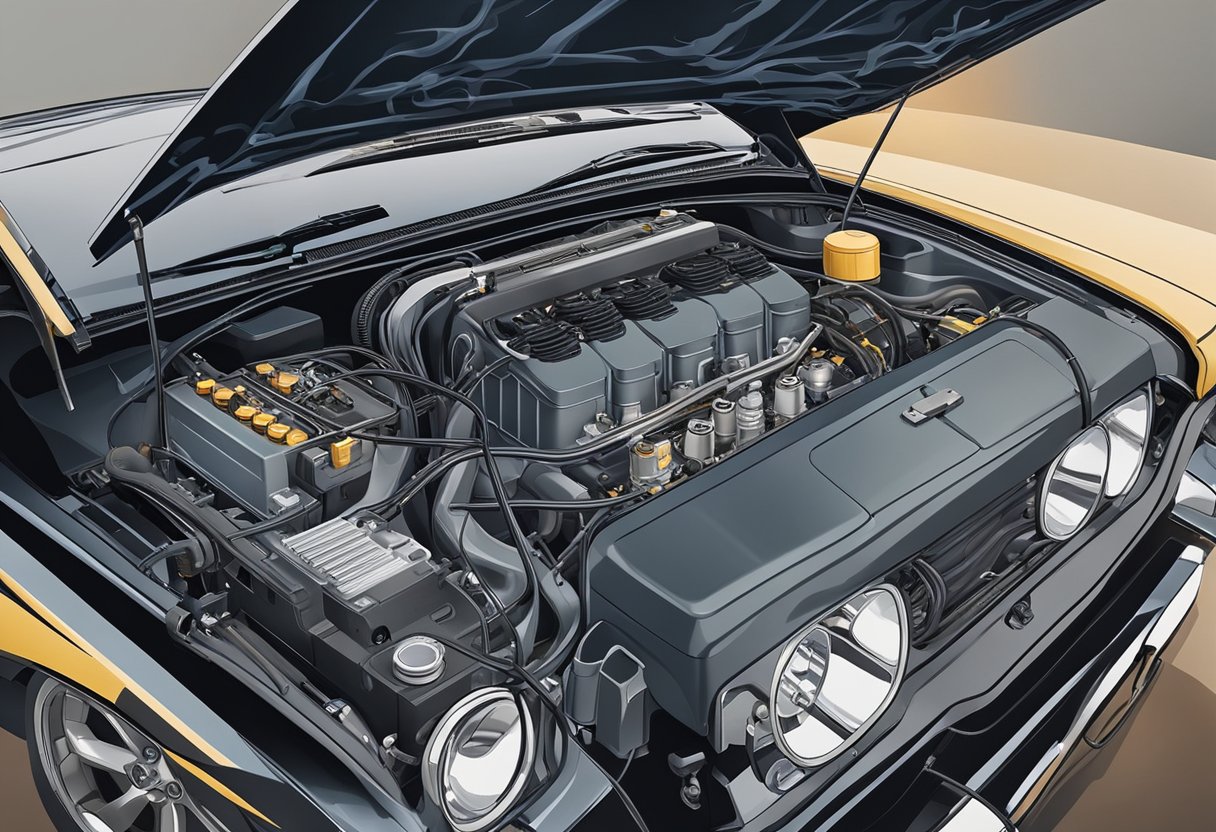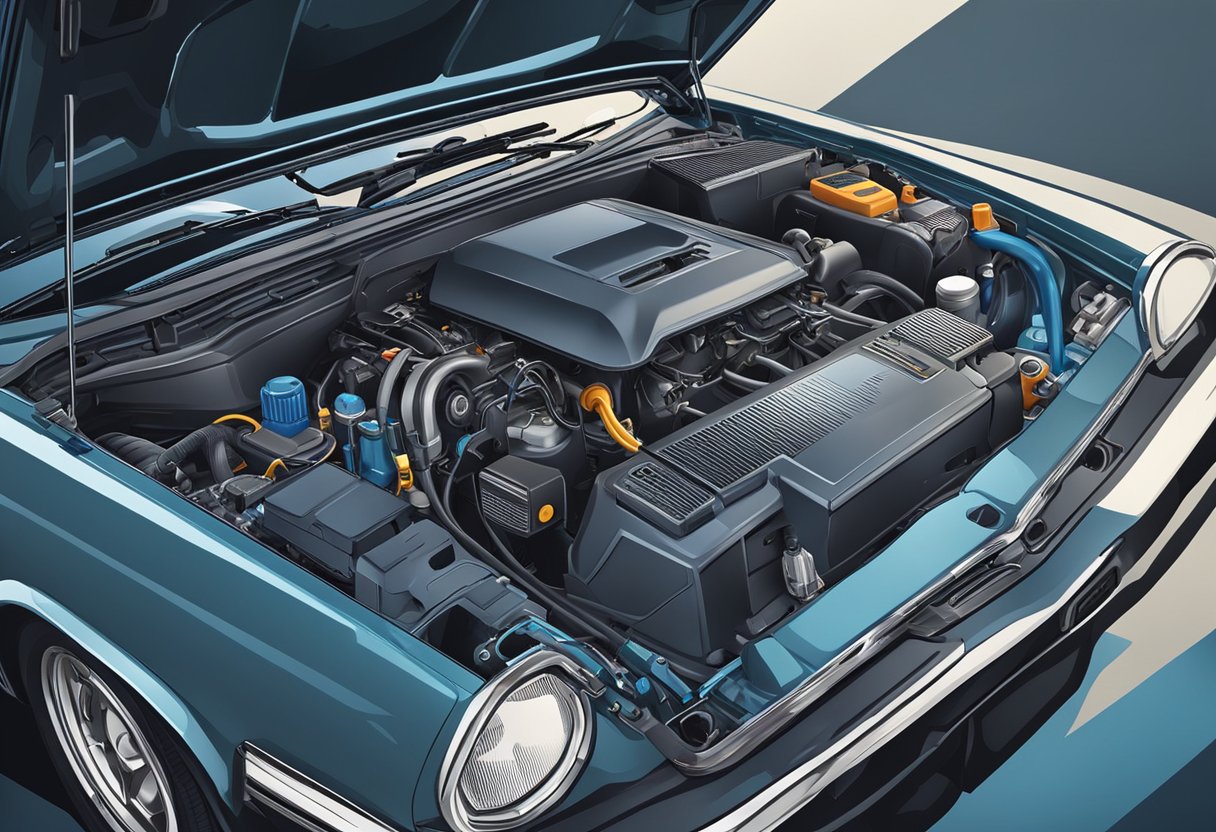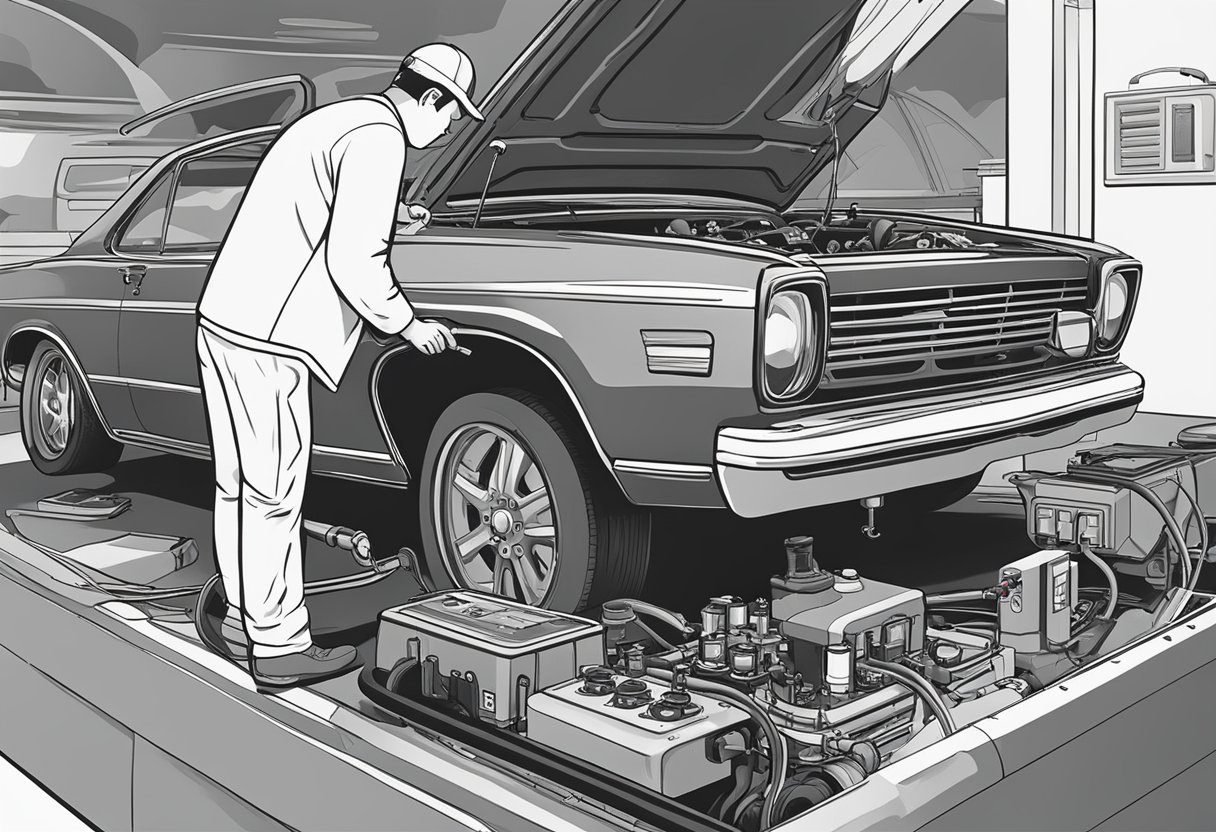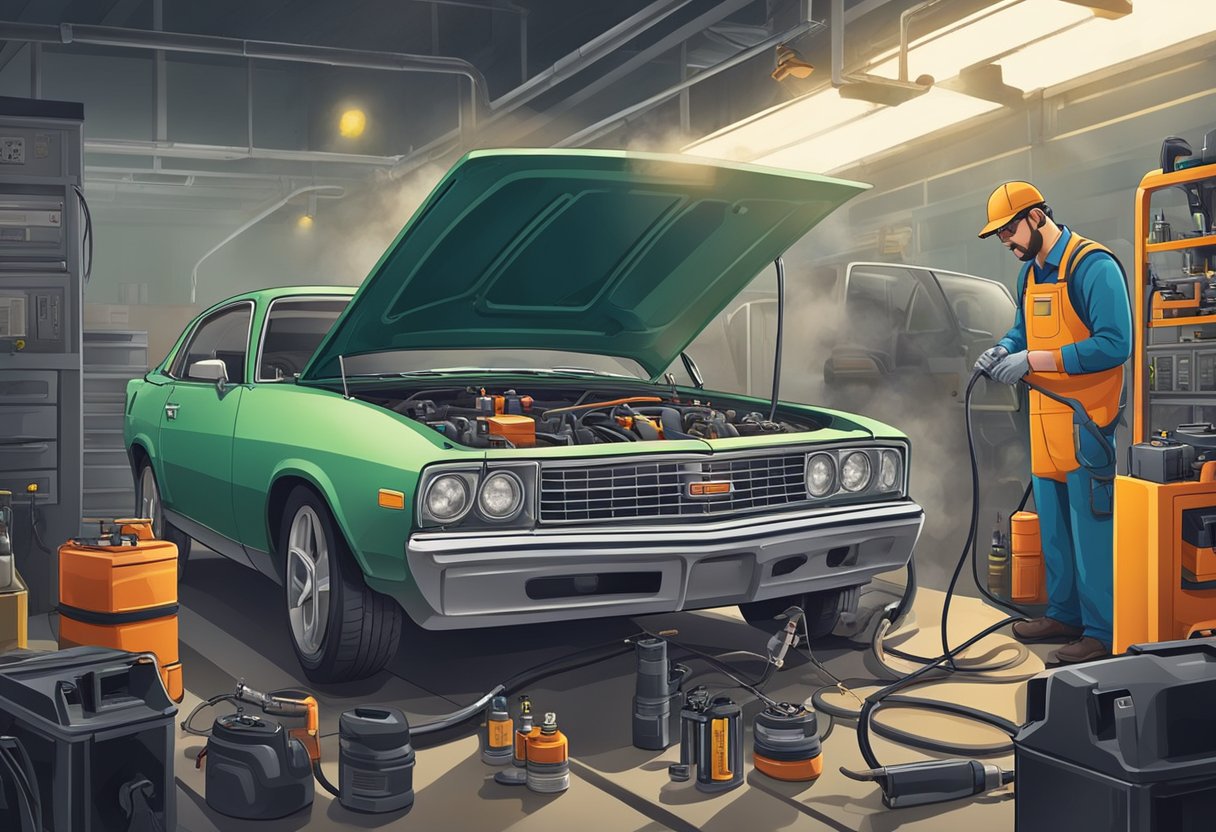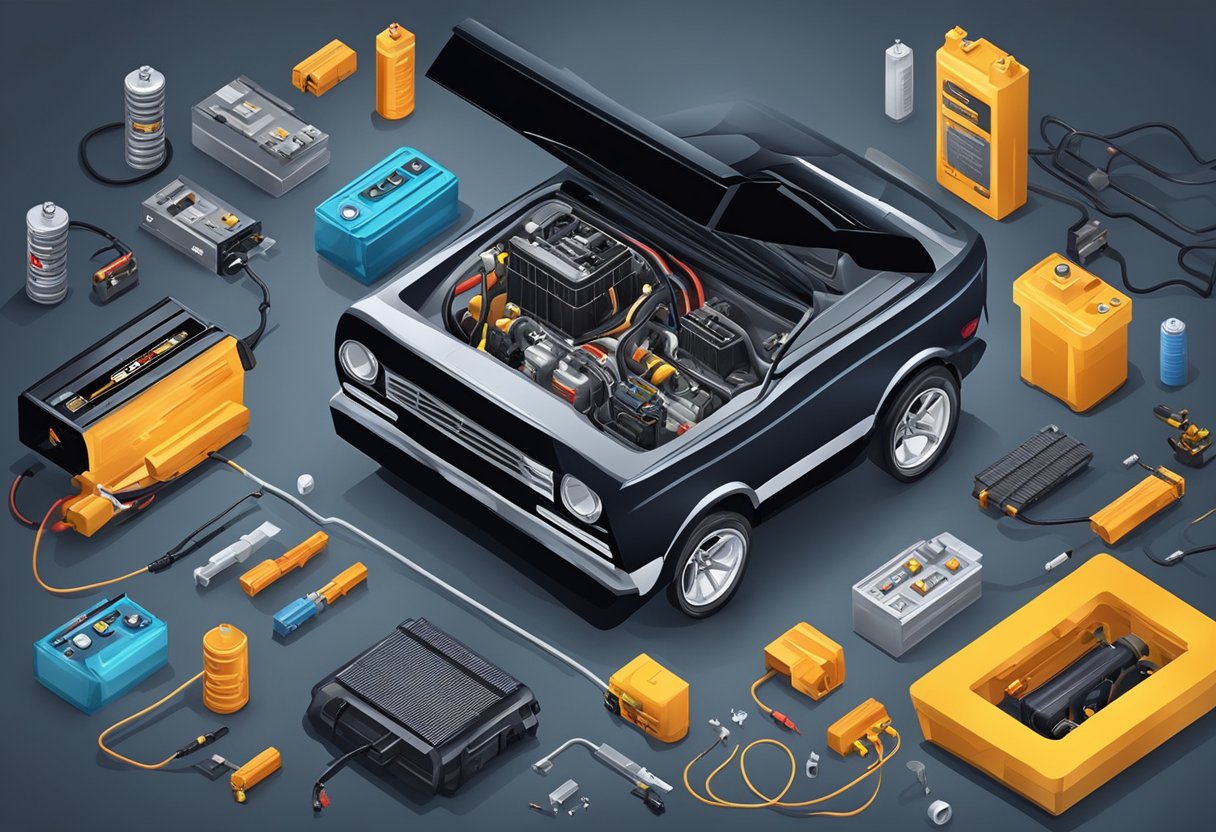Have you ever noticed smoke coming from under your car hood? If so, it can be a concerning and potentially dangerous situation. One of the most common causes of smoke from under the hood is a problem with your car battery. Smoke from the battery can be caused by a variety of issues, ranging from minor to severe.
If you’re experiencing smoke from your car battery, it’s important to address the issue promptly. Not only can a smoking battery be a sign of a larger problem, but it can also be a fire hazard. In this article, we’ll explore some of the common reasons why your car battery may be smoking, and what you can do to fix the problem. From loose connections to electrical issues, we’ll uncover the most common under-the-hood troubles that can cause your car battery to smoke.
Identifying the Causes of Battery Smoke
When you notice smoke coming from your car battery, it’s crucial to take action immediately. The smoke could be a sign of a severe problem that requires attention. Here are some of the possible causes of battery smoke:
Overcharging and Heat Generation
Overcharging is one of the most common reasons why a car battery might smoke. When the battery is overcharged, it generates excess heat, which can lead to smoke. Overcharging can occur due to a faulty alternator, voltage regulator, or charging system. It’s essential to check these components regularly to avoid overcharging your battery.
Short Circuits and Internal Damage
Short circuits can also cause a car battery to smoke. A short circuit occurs when the positive and negative terminals of the battery come into contact, causing a spark. The spark can ignite the battery’s internal gases, leading to smoke. Internal damage to the battery, such as a cracked case or damaged plates, can also cause smoke.
Electrolyte Leakage and Chemical Reactions
Electrolyte leakage is another possible cause of battery smoke. When the battery’s electrolyte leaks, it can come into contact with other chemicals in the engine compartment, leading to a chemical reaction. The reaction can produce smoke and even flames. It’s essential to check your battery for leaks regularly and replace it if necessary.
In conclusion, smoke coming from your car battery is a sign of a severe problem that requires attention. By identifying the causes of battery smoke, you can take the necessary steps to prevent further damage to your car and ensure your safety on the road.
Immediate Steps to Take
If you notice smoke coming from your car battery, it is important to take immediate action to prevent further damage or injury. Here are the steps you should take:
Disconnecting the Battery
The first thing you should do is disconnect the battery. This will help prevent any further damage to your car’s electrical system and reduce the risk of fire. To disconnect the battery, follow these steps:
- Turn off the engine and remove the key from the ignition.
- Open the hood of your car and locate the battery.
- Using a wrench, loosen the negative cable clamp and remove it from the battery terminal.
- Repeat the same process for the positive cable clamp.
Ventilating the Area
After disconnecting the battery, you should ventilate the area to reduce the risk of explosion. This is particularly important if you notice a strong smell of sulfur or rotten eggs, which could indicate a leak in the battery. To ventilate the area, follow these steps:
- Open all the doors and windows of your car.
- Move your car to a well-ventilated area, away from any sources of ignition.
- Wait for at least 30 minutes to allow the fumes to dissipate.
Assessing the Damage
Once you have disconnected the battery and ventilated the area, you should assess the damage. Look for any signs of corrosion, damage to the battery casing, or leaking fluid. If you notice any of these signs, it is best to have your car towed to a qualified mechanic for repair.
Remember, if you are unsure about what to do or feel unsafe, do not hesitate to call for professional help. Taking the right steps to address a smoking car battery can help prevent serious damage and keep you safe on the road.
Could a Smoking Car Battery be Connected to the Service ESC Light Issue?
When to worry about service esc light: If your car battery is smoking, it could potentially lead to an electrical malfunction that triggers the service ESC light. This is a serious issue that should be addressed immediately by a qualified mechanic to prevent further damage to your vehicle’s electrical system.
Preventive Measures and Maintenance
To avoid the hassle of a smoking car battery, it is important to take preventive measures and perform regular maintenance. Here are some tips to keep your battery and vehicle in good shape.
Regular Battery Inspections
Regular battery inspections can help you identify any problems before they become major issues. Check your battery at least once a month to ensure that it is clean, free of corrosion, and securely mounted in place. If you notice any cracks or leaks, replace the battery immediately.
Proper Charging Practices
Proper charging practices can help extend the life of your battery. Make sure that you use the correct charger for your battery and that you follow the manufacturer’s instructions carefully. Overcharging or undercharging can cause damage to your battery and lead to smoking or other problems.
Ensuring Secure Connections
Make sure that your battery connections are clean and tight. Loose or corroded connections can cause your battery to smoke or fail. Check your battery cables regularly and replace them if they are damaged or worn.
By following these preventive measures and performing regular maintenance, you can help ensure that your car battery stays in good condition and avoid the problems that come with a smoking battery.
Professional Diagnosis and Repair
When to Consult a Mechanic
If you notice your car battery smoking, it’s important to take action immediately. While some minor issues can be resolved with a DIY approach, it’s important to know when to consult a professional mechanic. If you experience any of the following symptoms, it’s time to take your car to a mechanic:
- Your battery is smoking heavily
- You notice a burning smell
- The battery is swollen or leaking
- You hear strange noises coming from the engine
A mechanic will be able to diagnose the problem and recommend the best course of action.
Understanding Repair Options
When it comes to repairing a smoking car battery, there are a few different options available. These include:
- Battery replacement: If your battery is damaged beyond repair, a mechanic may recommend replacing it entirely. This can be a costly option, but it ensures that your car is safe to drive.
- Battery cleaning: Sometimes, a smoking battery can be caused by a buildup of dirt and debris on the terminals. A mechanic can clean the terminals and ensure that they are making proper contact with the battery.
- Electrical system repair: In some cases, the issue may be caused by a problem with the electrical system. A mechanic can diagnose the problem and repair any damaged components.
It’s important to understand your repair options and weigh the pros and cons of each. A professional mechanic can provide you with guidance and help you make an informed decision.
Long-Term Battery Health and Replacement
Recognizing Battery Lifespan
One of the most important things to know about your car battery is its lifespan. Most car batteries have a lifespan of 3-5 years, but this can vary depending on the type of battery and how well it is maintained.
To get the most out of your battery, it is important to keep it clean and free of corrosion. You should also make sure that your alternator is working properly, as a faulty alternator can cause your battery to fail prematurely.
If you notice that your battery is taking longer to charge or is not holding a charge as well as it used to, it may be time to replace it. It is always better to replace your battery before it completely fails, as a dead battery can leave you stranded.
Choosing the Right Replacement Battery
When it comes time to replace your car battery, it is important to choose the right one. There are many different types of batteries available, each with their own pros and cons.
One of the most important things to consider when choosing a replacement battery is the size and type of battery that your car requires. You should also consider the climate in which you will be driving, as extreme temperatures can affect battery performance.
Other factors to consider include the battery’s warranty, its cold cranking amps (CCA), and its reserve capacity (RC). A battery with a higher CCA and RC will generally perform better and last longer than one with lower ratings.
Overall, taking care of your car battery and replacing it when necessary is an important part of maintaining your vehicle. By recognizing the signs of a failing battery and choosing the right replacement, you can ensure that your car starts reliably and runs smoothly for years to come.
As an Amazon Associate we earn from qualifying purchases.








